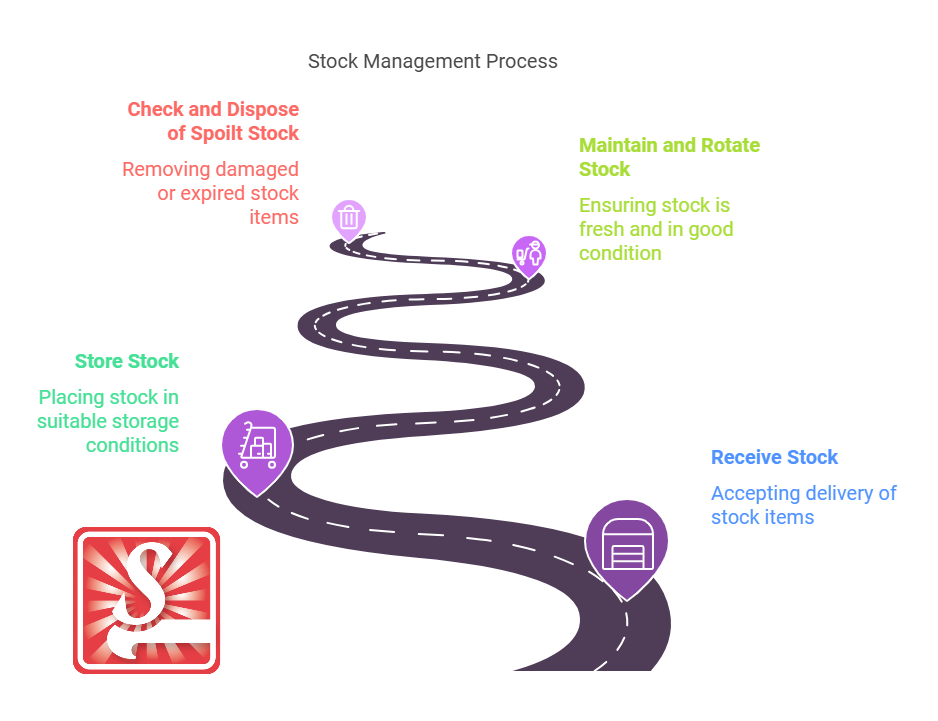Understanding Expiration Dates in Stock Management
Posted by SkillMaker in Jan, 2025
What is a concise description of expiration dates in stock management?

Expiration dates in stock management refer to the specific dates that indicate when a product is no longer considered safe or suitable for consumption or use. Effective management of expiration dates involves keeping track of these dates to ensure products are used, sold, or discarded appropriately, thus maintaining safety and quality standards.
Why do people in enterprises need expiration dates in stock management?
Enterprises need to manage expiration dates meticulously to avoid selling or using expired products, which can lead to health risks, customer dissatisfaction, and legal implications. Accurate handling of these dates helps maintain product quality, reduce waste, and support inventory control, ultimately protecting the reputation and financial health of the business.
“Effective management of expiration dates ensures safety, reduces waste, and enhances inventory efficiency, contributing to a responsible and organized stock system.”
What are the key components or elements of expiration date management in stock?
Key components of managing expiration dates in stock include:
- Regular Auditing: Conducting frequent checks to track expiration dates and condition of stock.
- Accurate Labelling: Ensuring all products are clearly labelled with expiry dates.
- First In, First Out (FIFO): Implementing FIFO to minimize the risk of stock expiry.
- Inventory Technology: Utilizing software systems for alert and monitoring of expiration dates.
- Training and Procedures: Educating staff on the importance and methods of managing expiration dates.
What key terms, with descriptions, relate to expiration dates in stock management?

Registered Trademark®
- Best Before Date: The date until which the product will remain of good quality.
- Use By Date: The last date recommended for the use of the product for health and safety reasons.
- Stock Rotation: The practice of moving older stock to the front to be used or sold first.
- Recall Procedures: Processes to manage the return of expired or defective products.
- Waste Management: Efficient disposal of expired stock to minimize environmental impact.
Who is typically engaged with managing expiration dates in stock?
Store managers, inventory officers, and warehouse staff are typically responsible for managing expiration dates. These roles involve overseeing the tracking and handling of stock to ensure products remain within their valid usage period.
How do expiration dates in stock management align or integrate with other components of Hospitality and Catering?

Expiration date management in stock is closely linked to quality assurance, health and safety standards, and inventory efficiency in Hospitality and Catering. By effectively managing these dates, businesses can ensure they meet regulatory requirements, maintain food safety, and optimise inventory turnover, thus enhancing overall operations.
Where can the student go to find out more information about expiration dates in stock management?
What job roles would be knowledgeable about expiration dates in stock management?
Roles include:
- Inventory Officers
- Warehouse Managers
- Quality Control Managers
- Stock Controllers
- Logistics Coordinators
What is expiration date management in stock like in relation to sports, family, or schools?

In sports, managing expiration dates is like ensuring athletes have a schedule that optimizes peak performance times. In a family context, it’s akin to managing grocery supplies to ensure meals are healthy and ingredients are fresh. Within schools, expiration date management resembles keeping track of assignment deadlines to ensure timely submissions without compromising quality.
(The first edition of this post was generated by AI to provide affordable education and insights to a learner-hungry world. The author will edit, endorse, and update it with additional rich learning content.)


 Post Tagged with
Post Tagged with